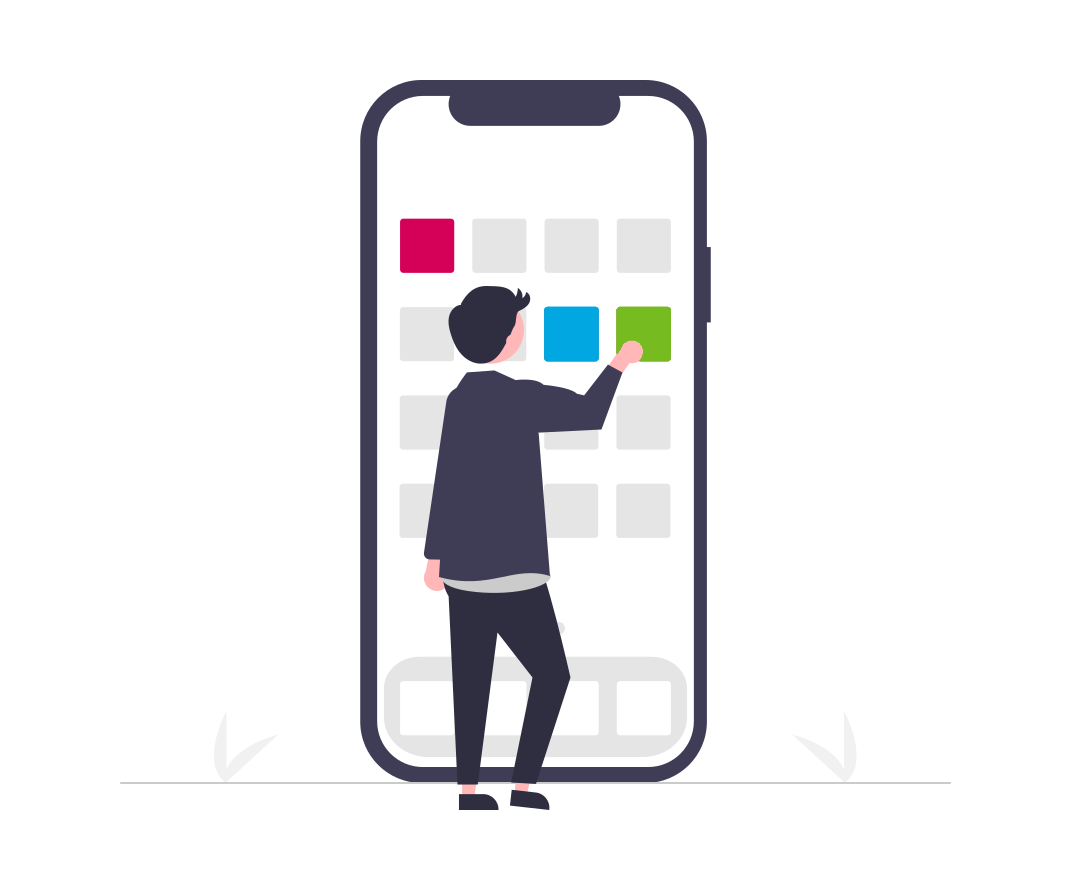Mobile
Understanding basic functions of a mobile device to communicate and access goods and services.

Guiding Questions
- Do I understand the basics about using my mobile device?
- Can I safely use a mobile device to shop, bank, or share information?
- Do I understand the difference between using cellular data and Wi-Fi?

Context Why the skills in each domain are needed for digital opportunity, defined as "the condition in which individuals and communities have the information technology capacity that is needed for full participation in the society and economy of the United States" (H.R.3684)
With 90 percent of U.S. adults now in possession of a smartphone,14 Americans are becoming increasingly reliant on their mobile devices for daily tasks and activities. According to a 2022 Gallup poll, Americans are now more likely to rely on their smartphones instead of their computers for accessing social media and browsing the internet, and they are equally likely to rely on their smartphones to shop online and manage their finances.15
However, gaps in mobile device ownership persist: according to the Pew Research Center, low-income households, Black adults, older adults, and adults with only a high school diploma are less likely to own a smartphone. For adults who do own a smartphone, 15 percent are smartphone dependent, meaning they have a smartphone but not home broadband access. A disproportionate percentage (28 percent) of low-income households are smartphone dependent.16 Thus, while large-screen devices may be preferable for learning and work, smartphone access and mobile skills can still open the doors wide for many learners.
Awareness What practitioners should know before teaching each domain (e.g., related topics, factors that may affect learners)
Practitioners should be aware of the following when teaching mobile skills:
- Device skills: Learners who are not comfortable using a computer may already be proficient in mobile skills, and vice versa.
- Online access: Learners may be reliant on limited cellular data or public wi-fi as their only means of online access due to cost or a lack of other available or reliable options.
- Financial tools: Some learners may be mistrustful of financial institutions and online financial tools, and thus may not be interested in using these tools at all.
- Artificial intelligence: Learners should be aware of how businesses and financial institutions use artificial intelligence in their apps to collect consumer information, assist consumers, provide recommendations, and show sponsored or advertising content.
Taking Action What practitioners and programs can do to be empowering when teaching each domain
Practitioners can take action to be empowering in the following ways:
Instruction and Training
I can:
- Learn from learners and identify the challenges they may face when it comes to mobile skills.
- Help learners understand similar functions and features between those on mobile devices and those on large-screen devices.
- Use instructional materials and tools that are optimized for mobile devices.
- Use instructional materials and tools that are less data-intensive for learners relying on cellular data plans.
- Help learners set up basic accessibility features on their smartphones.
- Speak to the benefits of using online financial tools while respecting learners’ right to manage their finances differently.
- Provide instruction on the benefits and risks of AI usage by businesses and financial institutions in their apps.
- Provide instruction on the benefits and risks of giving apps access to contact lists, photos, and other information stored on a mobile device.
- Help learners recognize that the content they see online is often based on algorithms intended to present content of interest based on learners’ prior online activity.
Program Design
Our program:
- Connects learners to affordable, appropriate mobile data plans, taking into account common concerns such as cost, being locked into a contract, and language(s) of service.
- Regularly provides and/or shares information with staff and volunteers on training and resources on accessible smartphone features.
Related Empowering Practices
See the following domains for relevant skills and related empowering practices:
Communication, Device Ownership, Online Life, Privacy and Security
Citations





